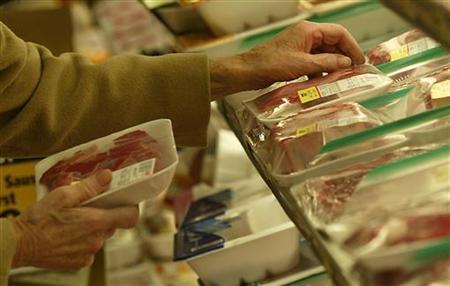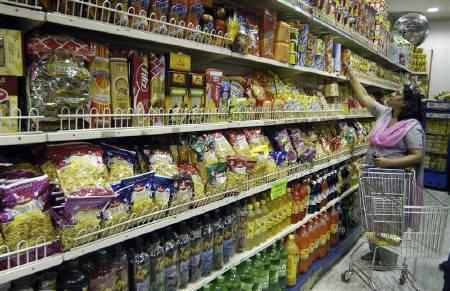 | « Back to article | Print this article |
Now, online grocery stores draw investor interest
After BigBasket, another online grocery retailer, MyGrahak, is scouting for private equity (PE) investment to fund its expansion plans.
The 'e-tailing' company, which operates in the National Capital Region, said it would need about Rs 150-200 crore (Rs 1.5-2 billion) for expansion in the next three years. It is in talks with a few PE players to raise about $10 million (Rs 50-60 crore) in the next six months.
"Even though we started about one-and-a-half-years ago, we are seeing our customer base growing quite fast, with our registered user base crossing 25,000 and growing 25 per cent each month. To service the growing number of customers, we are looking forward to raising Rs 50-60 crore (Rs 500-600 million) in the first round to expand our warehousing and logistics," said founder and chief executive Ambuj Jhunjhunwala.
Click NEXT to read more...
Now, online grocery stores draw investor interest
In March, PE firm Ascent Capital had invested about $10 million in Bangalore-based online grocery store BigBasket. This was said to be the first institutional investment in any online grocery company in India.
Another Bangalore-based online grocery hypermarket, ZopNow, is reportedly in talks with Accel Partners and Qualcomm Ventures for its first round of funding. In June, Mumbai-based online grocery retailer Ekstop had raised an undisclosed amount from angel investors.
Jhunjhunwala said the investor community had shown "significant amount of interest" in his venture.
Click NEXT to read more...
Now, online grocery stores draw investor interest
Does this signify grocery e-tailing would attract investors as much as other e-commerce segments like lifestyle, consumer and electronic goods and apparels?
"Perhaps. I feel two years ago, there was low interest in this (online grocery) sector. But today, the belief among investors has increased. Realising its potential, people are very keen to invest in this sector," says Jhunjhunwala.
Meena Ganesh, managing director of Pearson India, who has invested in BigBasket, says investors do not look at online grocery retailing in the same manner as they look at a typical e-commerce company. She says this is because online grocery requires a lot of offline work -- from sourcing the product to pricing the product right and delivering it home.
Click NEXT to read more...
Now, online grocery stores draw investor interest
"So, you need the right team. It is not that someone very bright, may be an IITian, can build such a business. It requires a lot of on-ground experience," she adds.
Raj Kondur, director at Ascent Capital, says despite immense potential, the online grocery segment is not everyone's cup of tea.
"It is a difficult business because you are dealing with lots of categories of items you have to source in a timely manner; the logistics and operational aspects are very complex. But we are fortunate we backed one of the most matured and capable teams, with very high operational excellence," he said.
Click NEXT to read more...
Now, online grocery stores draw investor interest
Ascent Capital-funded BigBasket now plans to start operations in Hyderabad and Mumbai in the next three months. After that, it plans to add two more cities to its list. Kondur said he expected the company to break-even soon.
Though online grocery retailing is a new entrant in India's growing e-commerce space, globally, companies selling grocery online have seen huge success. Ocado, Peapod, Safeway, Tesco, Amazon and NetGrocer are instances of such companies.
Over the last couple of years, at least half a dozen companies have established their presence through online grocery retailing stores in India.
Click NEXT to read more...
Now, online grocery stores draw investor interest
Other than BigBasket and MyGrahak, Indian grocery e-tailers include Aaramshop, ZopNow, Towness and Chennai Onlinegrocery. However, most of these companies offer services in specific cities or regions.
Some also follow different models. For instance, Aaramshop, a Delhi-based grocery e-tailer has tied up with local grocery stores for delivering products, instead of having its own warehouse.
This is because grocery e-tailing is quite capital-intensive, requiring huge back-end investment.
Click NEXT to read more...
Now, online grocery stores draw investor interest
Technopak Advisors said food and grocery accounted for less than one per cent of the Rs 2,700-crore (Rs 27-billion) e-tailing market in India. However, this category has the potential to contribute significantly to the market in the next 10 years.
"Non-availability of retail space would drive established retailers to approach the online channel more seriously, and have online presence to compliment physical presence," stated a Technopak Advisors report.







